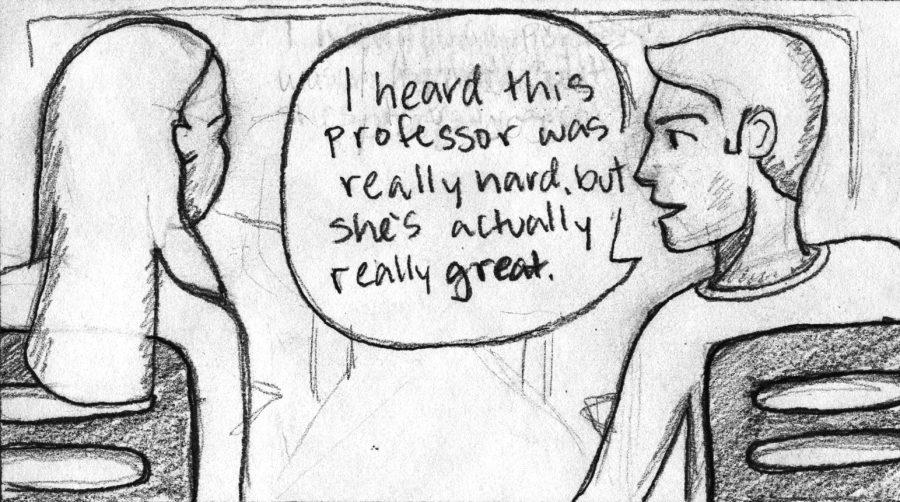With academic advising right around the corner, many students are beginning to plan their schedules for next semester.
For many, picking classes isn’t just about what is required and what fits with the rest of their schedule.
Students often consider whether friends will be in the same classes, what class combinations will result in the easiest workload and who is teaching the classes they need when they choose a schedule for the upcoming semester.
When deciding what classes to take, RateMyProfesors.com and other similar websites are not the most useful tools.
Websites like RateMyProfessors.com rely on student votes to give professors a ranking of up to five stars. Students can vote on a professors overall quality, easiness and how attractive they are.
These factors are not a good representation of a professor’s ability, and they don’t reflect a broad range of opinions.
Typically, students only vote if they loved or hated a particular professor. Students who were indifferent or thought the professor was average aren’t as motivated to vote, so the results are drastically skewed.
There is no way of knowing if one student didn’t do the classwork and consequently got a bad grade but blamed the professor and took it out on them by giving them a poor ranking.
In addition to having skewed results, RateMyProfessors.com evaluates information that has nothing to do with a professor’s teaching ability.
By ranking a professor’s perceived attractiveness, these websites objectify the role models students are supposed to look up to. How attractive someone is has nothing to do with their academic ability.
Unless you are a model, you will never be asked to submit a photo on a job application, because what you look like doesn’t determine whether you are fit for a job.
After graduation, most won’t have the option of choosing their boss or coworkers.
Almost everyone will have to work with a person they don’t get along with at some point in their life, and usually there won’t be anything they can do about the situation but learn how to work around their differences.
Similarly, students should use experiences with professors they don’t get along with as learning opportunities.
If a student has problems with a professor, they should set up a meeting with that professor to discuss the issues.
If that fails to resolve the problems, students can meet with the professor’s department chairperson to further discuss the issue.
Another way students can provide honest feedback is through the evaluations given at the end of the semester. Although it might seem like filling out an evaluation doesn’t get anything done, they are actually reviewed after the semester is over and kept on file.
If students feel the need to look up potential professors on RateMyProfessors.com or a similar website, they should be sure to take note of the number of votes that professor has received.
If a professor has a bad overall rating but only a few students have voted on them, it is probably not an accurate reflection of what the professor is actually like.
Instead of rearranging class schedules to avoid a particular professor or letting the opinions of other decide their schedules, students should take the classes they need when it is most convenient to take them and decide for themselves if they like the professor’s teaching style.


